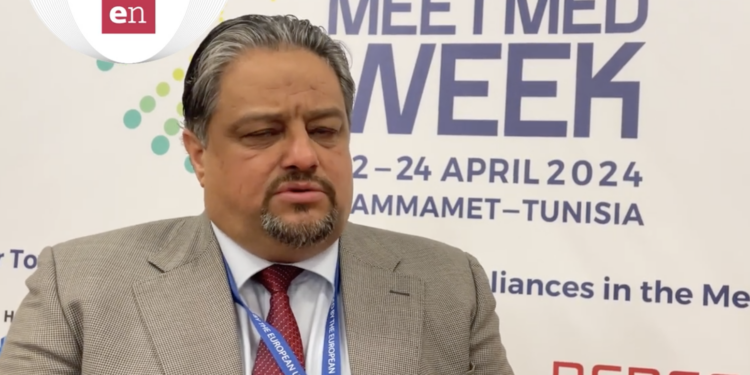Hammamet – “Jordan enacted the Renewable Energy Law in 2012 to increase their participation in the total energy mix, and there are many initiatives to increase electricity generation from renewable sources to 50 per cent of the total energy consumed in Jordan,” has said Firas Alawneh, director of Jordan’s National Center on Energy Research, during the ongoing MeetMed Week in Hammamet, Tunisia, organized by Medener (which has Roberta Boniotti of ENEA as secretary general), ANME (the Tunisian National Agency for Energy Management) and in partnership with APRUE (the Algerian National Agency for the Promotion and Rationalization of Energy Use).
“We also have many initiatives for energy efficiency, and the energy efficiency plan has been implemented and updated three times to increase the share of energy efficiency in the total energy mix in Jordan. This is one of the main goals of the government and the Ministry of Environment to increase the growth of the green economy.”
Regarding “the crisis due to the war” in the Middle East, Jordan is an oil-importing country and is now planning to become the region’s hub for green hydrogen.” That is why “we have an initiative announced by the European Bank for Reconstruction and Development to implement the first plans for green hydrogen infrastructure in Jordan, and I think the Ministry of Energy and Resources is now evaluating the bids received from consultants to select the right partners for this work,” Alawneh continued. “Jordan has a plan to invest in green hydrogen and needs to build or implement 21 gigawatts of solar power, make electrolyzers to produce hydrogen from water from the Red Sea, and use ammonia. I repeat,” continued the director of the Jordanian National Center on Energy Research, “I think Jordan will be the region’s hub in the next ten years.”
In addition, “We already have agreements, and we want Israel to import natural gas, so we don’t have any restrictions.” Still, in the region, “there are also the other Arab countries, so we have to find a comprehensive solution that doesn’t displease anyone.” Alawneh added: “We want all the countries in the region to be satisfied with any future solution; we don’t have any problem with the other countries; Jordan is the safest state in the region.”
English version by the Translation Service of Withub



![Il commissario per l'Economia, Valdis Dombrovskis, in conferenza stampa a Strasburgo [12 febbraio 2025]](https://www.eunews.it/wp-content/uploads/2025/02/dombro-250212-350x250.png)






